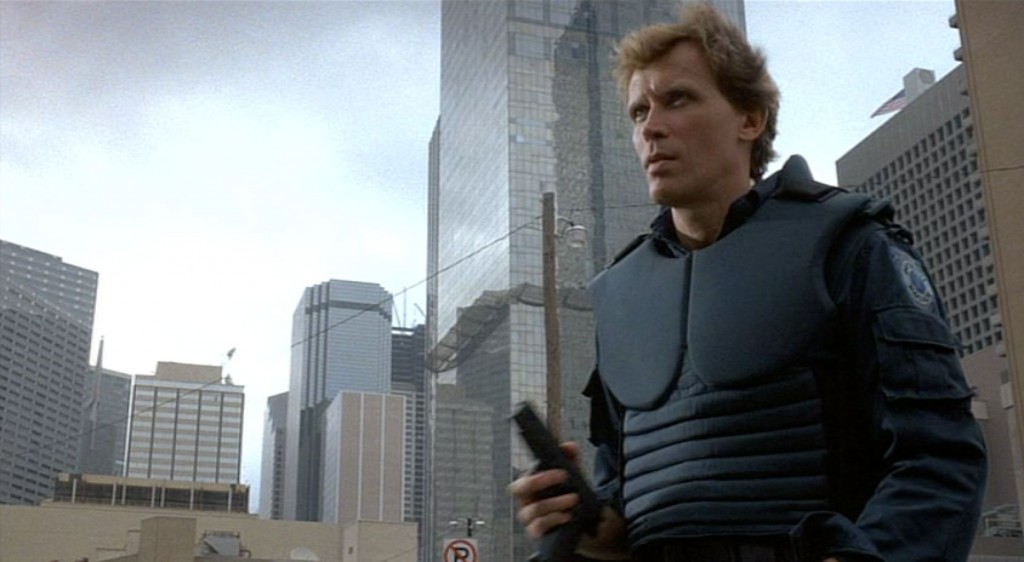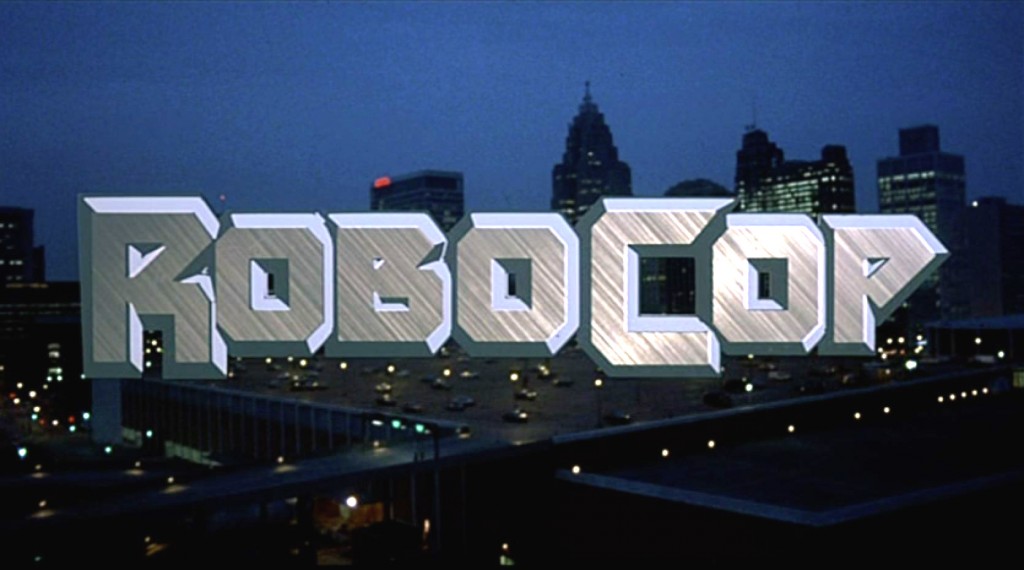Favorite screenplays: Robocop part 2
Murphy is a simple man who has been drafted into a complex, dangerous world. When we catch up with him at the fourteen-minute mark, he’s practicing his gun-twirling. Why is he practicing his gun-twirling? Murphy explains to spitfire partner Lewis, because there is a cop on TV, T.J. Lazer, who is a “good cop,” and whom Murphy’s son loves. So in the space of twenty seconds or so, we learn that Murphy is a dedicated father, loves his son, wants “to be good” for the sake of that son. The bashfulness with which he describes this intimacy to Lewis indicates that he is also in love with his wife. This is without staging a “family scene” that would dramatize all this. Again, that’s probably due to budget, since the screenplay is telling instead of showing, but it has a dramatic payoff: the screenplay, like Murphy, at this point takes his happy family for granted. He’s good, his son is good, his wife is good, he sees people as good, he’s about to get a lesson in how bad people can be. Like Jason Bourne, Murphy will be forced to rediscover who he is, and for the most part the viewer will be put in the place of the protagonist, which is an ideal place for a viewer to be.
Favorite screenplays: Robocop part 1
The first and last question of any screenplay is “What does the protagonist want?” But sometimes it’s necessary to first define the world the protagonist lives in. This can be done a number of ways. In the low-budget movies of Roger Corman or William Castle, sometimes the movie begins with a simple monolgue straight to the audience. It’s cheap but effecient, and it forges a bond with the audience that “cooler” movies don’t. The filmmaker, in effect, makes a deal with the audience, saying: Look, I don’t have a big budget or fancy stars, all’s I got is ideas, work with me here.
Robocop isn’t quite that low-budget, but it does the next-step-up version of that: it opens with a TV news report. The smiling TV anchors tell us the days news: South Africa is going nuclear to preserve white control of the country, the president of the US stages a press conference from the orbiting space station with hilarious results, and police officers in Detroit, which has a privatized police force, are being slaughtered by a group of ruthless gangsters. The TV report, revving for maximum efficiency, goes so far as to name the movie’s chief antagonist, Clarence Boddicker, and its secret ultimate bad-guy, Dick Jones. Jones, the new leader of the new corporate-owned Detroit police force, expresses no sympathy for the policemen slaughtered on his watch. “If you can’t take the heat, stay out of the kitchen,” he advises any police officers who might object to being out-gunned by madmen. The TV news report also lays in a layer of knowing satire on the narrative, letting us know that it’s going to look at this world from a skeptical stance. It accomplishes the same thing as the Corman voice-over, it takes the audience aside and lets it know, quickly and cleanly, its attitude toward its genre and narrative.
(Speaking of low-budget exploitation movies, I assume Clarence Boddicker is named for Budd Boetticher, the great director of tight-lipped westerns.)

